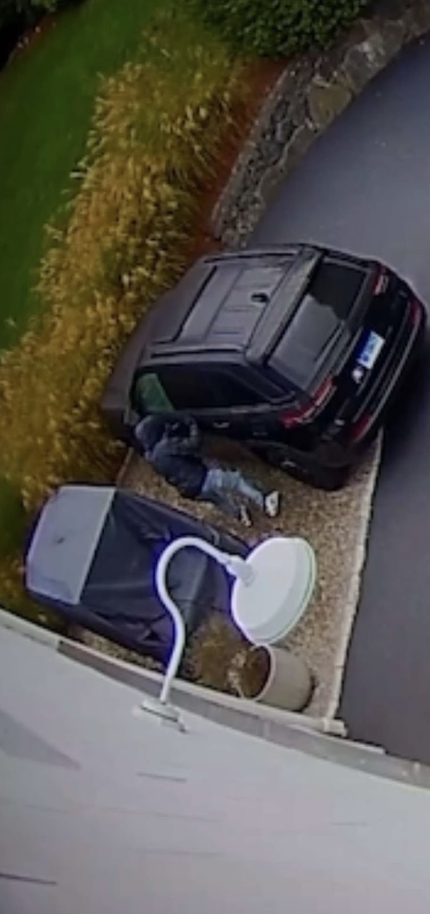
*Names have been changed for purposes of anonymity.
For teens at Second Nature, a wilderness therapy program, their stay in the woods has much more significance than the average camping trip.
Second Nature is one of many wilderness programs dedicated to serving teens and young adults with a range of mental, behavioral, developmental, and substance abuse problems.
Troubled teens from all over the country have attended wilderness therapy programs where they spend several weeks away from home, living in the woods where they are taught how to handle the issues they could not solve at home.
“The goal is to have them realize what they have taken for granted and behaviors that have developed from that,” student outreach counselor Chris Lemone said.
Each student’s stay at a wilderness program depends upon their specific needs, but usually ranges from four to 12 weeks.
Throughout their journey, students learn to cope with difficult situations in the wilderness without inappropriate behavior. Students are forced to reassess the lifestyles they led at home, and make changes that will positively impact their lives.
“[Wilderness programs] break down the person, and build them back up again,” Lemone said.
However, breaking down each student is not an easy task and not always successful. While many teens receive help through wilderness programs and return home with a new perspective, other teens do not find them to be a positive experience.
John*, a student from Chris Lemone’s private practice, spent 11 weeks at Second Nature in Georgia but returned home with only negative feedback.
“I did not like the program one bit, not during or after the program,” John said. “I felt the program was especially cruel not offering so much as a phone call to my family, only letters.”
John’s parents decided to send him to Second Nature because he “was smoking marijuana frequently and dropping out of school, or not attending,” according to John.
Although his parents felt this was enough reason for John to attend Second Nature, he did not think it was necessary. “I felt like the kids I was grouped with at the program had very serious drug issues while I simply smoked too much marijuana and never got into anything else,” John said.
Due to the fact that decisions for students to attend wilderness programs are most commonly made by parents or other adult figures in a student’s life, many students attend against their will. In such a situation, students are escorted to the program by a professional who can assist in the transition.
“I was not informed I would be sent [to Second Nature] until I was literally awoken at three a.m. from my bed, and forced to go by two huge guys my parents hired,” John said.
According to Second Nature’s website, approximately 70 percent of their students are escorted by professional transporters.
While being taken without warning or choice, may not seem like a loving act, but parents choose this option to make it clear they want their children to get better.
“[Being escorted] sends a powerful message saying we love you, we care about you. This is a non-negotiable decision,” Co-Founder of Second Nature Wilderness Programs, Dr. Brad Reedy wrote on Second Nature’s website. “It is often a positive way to start a powerful intervention like wilderness therapy.”
David,* a former Staples student attended the Second Nature program in Oregon and had a very different experience than John. David attended the program voluntarily, and had a positive impact on his life.
Even though David attended willingly, watching their son leave was still very difficult for his parents. “I felt a combination of relief because I knew he would be safe, and real overwhelming sadness,” David’s mother, who was granted anonymity, said.
Before he left, David was “really unhappy and wasn’t engaged in his life. He wasn’t interested in school, wasn’t connected with many peers, not excited about very many things, and just smoked a lot of pot,” said his mother. “As a parent I did not want that for him. I didn’t want him to go down that path without me helping him to see a different way of looking at things.”
With the help of the staff at Second Nature, David completed an eight–week program.
“The wilderness therapists are so incredibly kind and gentle, yet firm,” David’s mother said. “They really believed in the kids and he was in good hands.” After completing the program, David attended and graduated from a therapeutic high school, and continued on to college.
“[After Second Nature] he had much better understanding of himself, and much better understanding of how he wanted to communicate with family when he returned,” David’s mother said.
Despite the difficult situations students face during their stay at wilderness programs, often the hardest part is making the transition back home.
Many wilderness alumni attend transitional boarding schools as David did. However this is not always feasible due to cost.
David’s mother agreed that wilderness programs and transitional boarding schools are expensive, yet the results her son achieved made it “worth every penny.”













































wilderness program for troubled teens • Dec 30, 2010 at 7:59 am
This article really shows that there is a good impact joining in wilderness program specially those who had problems within themselves.It helps the individual to learn how to cope up and face the reality of life and guide them in the right path.